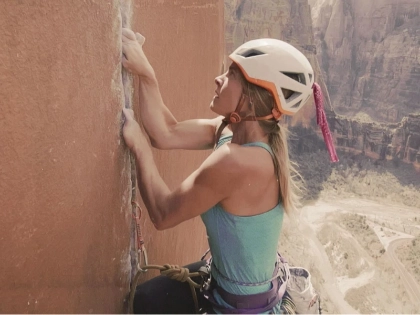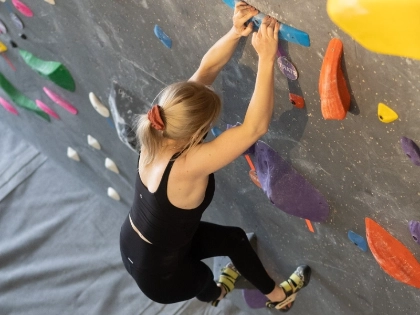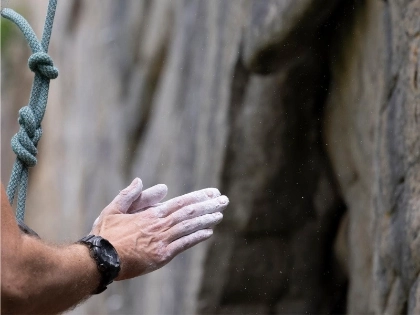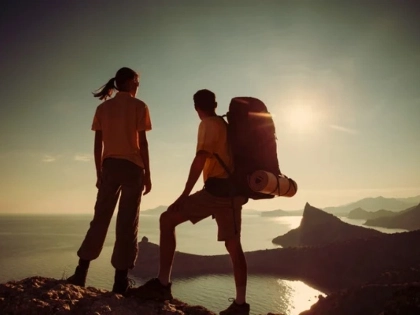Social Camping: What Is It?
Youth camps can impart skills for constructing social capital, which academics define as the web of connections that permits individuals to work towards common goals. Offering options for programme time and letting campers collaborate with other cabin groups are two ways they might achieve this. During the COVID-19 epidemic, people who were camping at home changed how they interacted with their outdoor areas. Throughout the taxing time of quarantine, these microadventures bolstered communal bonds and enhanced psychological well-being.
It's a fantastic method to make new friends.
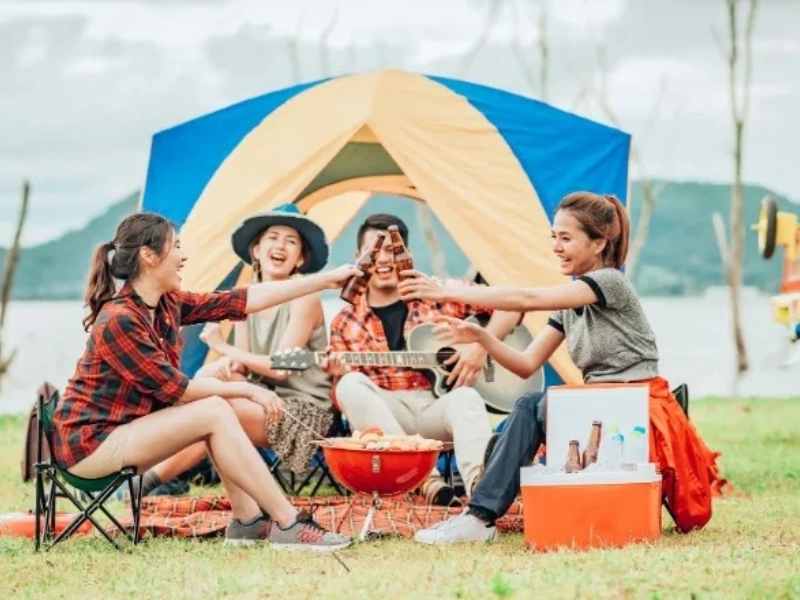
It's a fantastic way to spend time outside.
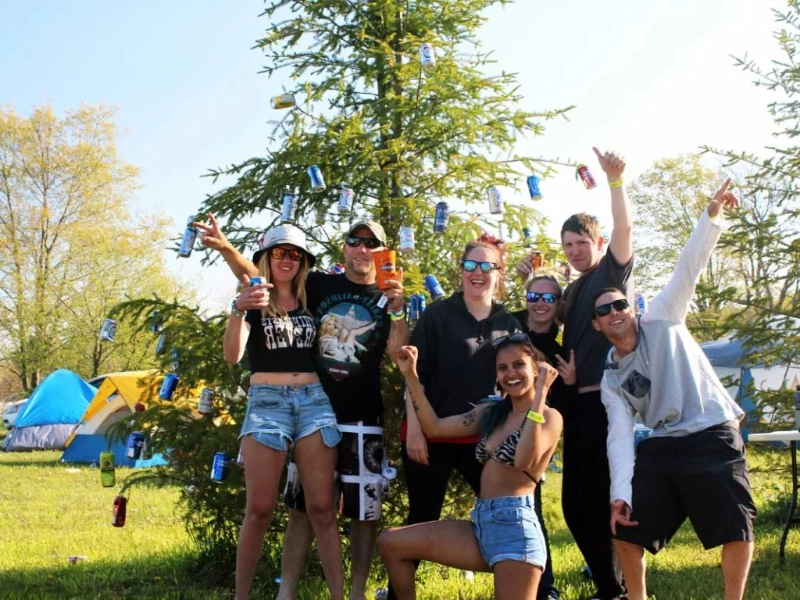 Camping is a great way to meet new people and get back in touch with the natural world. Along with the possibility for social skill development, it also offers a chance for family and group bonding. A sense of community and wellbeing are fostered by increased in-person communication made possible by the disconnection from technology. The camping also makes a lot of social activities easier, such preparing meals and sharing tales over the fire.
Additionally, camping fosters cooperation in both adults and children. To prepare meals, set up camp, and oversee the campground, they have to cooperate. Children's self-esteem and social skills can both benefit from this.
People can find peace and renewal in the tranquilly of the outdoors and connect with their spiritual side. Reevaluating one's priorities and aspirations might also be sparked by the calm surroundings. Additionally, it can aid in their appreciation of life's small pleasures. It can also offer a much-needed respite from the fast-paced lifestyle of today.
Camping is a great way to meet new people and get back in touch with the natural world. Along with the possibility for social skill development, it also offers a chance for family and group bonding. A sense of community and wellbeing are fostered by increased in-person communication made possible by the disconnection from technology. The camping also makes a lot of social activities easier, such preparing meals and sharing tales over the fire.
Additionally, camping fosters cooperation in both adults and children. To prepare meals, set up camp, and oversee the campground, they have to cooperate. Children's self-esteem and social skills can both benefit from this.
People can find peace and renewal in the tranquilly of the outdoors and connect with their spiritual side. Reevaluating one's priorities and aspirations might also be sparked by the calm surroundings. Additionally, it can aid in their appreciation of life's small pleasures. It can also offer a much-needed respite from the fast-paced lifestyle of today.
It's a fantastic method to exercise.
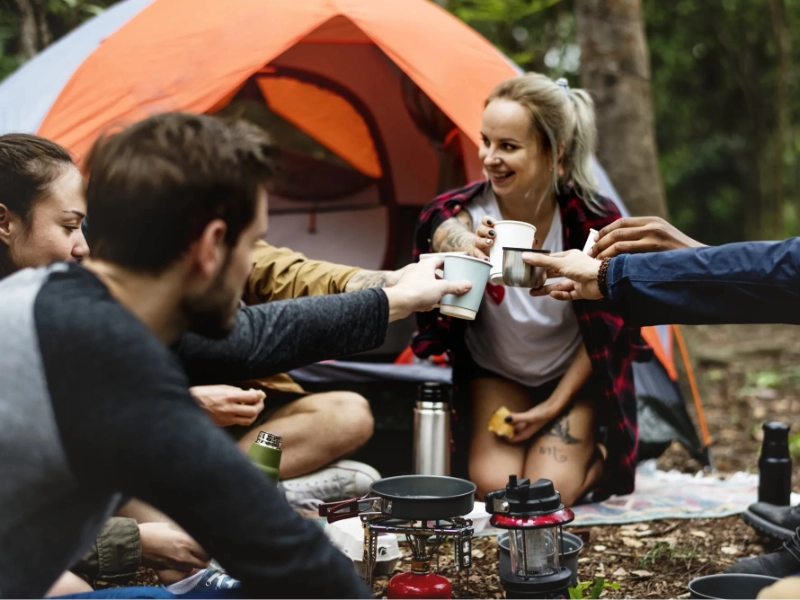 A fantastic approach to be active and in shape is to go camping. It is an enjoyable and captivating pastime suitable for the entire family. Additionally, camping offers an excellent chance for social skill development and the formation of wholesome bonds between people.
Children can also learn the value of teamwork through camping. It promotes teamwork amongst them in handling tasks like erecting tents, preparing meals, and gathering firewood. They also gain problem-solving skills and grow more self-reliant.
According to a study, following a one-week camp experience, participants' levels of social capital—a measure of interpersonal trust, team building, and their opinion of their own skills and abilities—increased. Considering the status of the world today and the need of fostering resilience in our children, this is an essential outcome.
A fantastic approach to be active and in shape is to go camping. It is an enjoyable and captivating pastime suitable for the entire family. Additionally, camping offers an excellent chance for social skill development and the formation of wholesome bonds between people.
Children can also learn the value of teamwork through camping. It promotes teamwork amongst them in handling tasks like erecting tents, preparing meals, and gathering firewood. They also gain problem-solving skills and grow more self-reliant.
According to a study, following a one-week camp experience, participants' levels of social capital—a measure of interpersonal trust, team building, and their opinion of their own skills and abilities—increased. Considering the status of the world today and the need of fostering resilience in our children, this is an essential outcome.
It's a fantastic way to unwind.
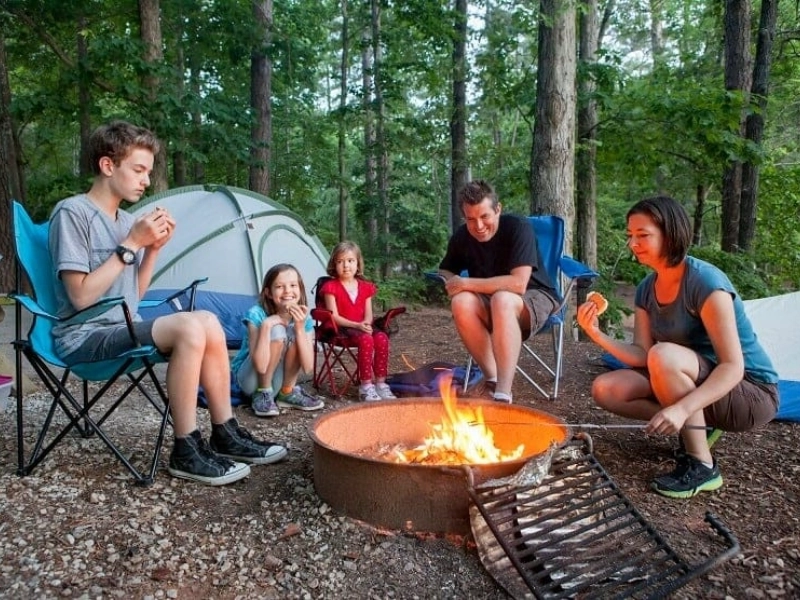 The absence of noise and the tranquilly of nature can both aid in mental relaxation. Along with fostering cooperation, camping teaches both parents and kids how to share and collaborate on activities. This fosters positive relationships with friends and family, which can enhance happiness.
While it can be challenging for campers to make new acquaintances in school, they frequently succeed in doing so while at camp. For some children, however, the camp setting can be too much. They might need to get used to new friends and carers, as well as a new routine and timetable. Rebalancing their energies and presenting themselves in the best possible light when they re-join the group is facilitated by a place to unwind.
Breathe in deeply of the fresh air as another method to unwind. The body can be revitalised by the scent of grass and trees. Furthermore, hiking and other leisure pursuits can increase serotonin release in the brain. This chemical has the ability to decrease inflammation, enhance circulation, and lessen stress levels in the body.
The absence of noise and the tranquilly of nature can both aid in mental relaxation. Along with fostering cooperation, camping teaches both parents and kids how to share and collaborate on activities. This fosters positive relationships with friends and family, which can enhance happiness.
While it can be challenging for campers to make new acquaintances in school, they frequently succeed in doing so while at camp. For some children, however, the camp setting can be too much. They might need to get used to new friends and carers, as well as a new routine and timetable. Rebalancing their energies and presenting themselves in the best possible light when they re-join the group is facilitated by a place to unwind.
Breathe in deeply of the fresh air as another method to unwind. The body can be revitalised by the scent of grass and trees. Furthermore, hiking and other leisure pursuits can increase serotonin release in the brain. This chemical has the ability to decrease inflammation, enhance circulation, and lessen stress levels in the body.

